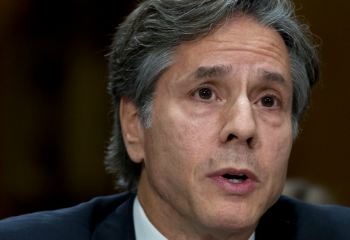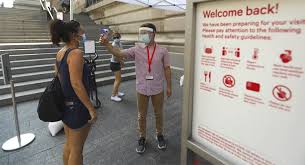World
US saw 204 mass shootings in 2015: Report

Washington: As yet another mass shooting in the US put the spotlight back on the contentious issue of gun control, media reports said that there have been 204 mass shootings in as many days in 2015 so far.
Thursday night’s shooting by a white man at a Lafayette, Louisiana, movie theatre showing the comedy “Trainwreck”, that left two women killed and nine injured was the third deadly mass shooting in six weeks.
The alleged shooter John Russell “Rusty” Houser, 59, using a handgun he legally purchased from an Alabama pawn shop methodically shot 11 people by firing off one 10-round clip, according to Lafayette Police Chief Jim Craig.
“This was slow and methodical,” as the State’s Indian-American Governor Bobby Jindal put it. “This was not a single burst.”
The Mass Shooting Tracker, a crowd-sourced project of the anti-gun folks at the Guns Are Cool subreddit, according to the Washington Post, had listed 203 mass shooting events so far in 2015 before the Louisiana movie theatre shooting.
This year there were 18 mass shootings in April, 39 in May, 41 in June, and 34 so far in July, the Post said.
The theatre shooting was Louisiana’s eighth this year. There have been 10 in Ohio, 14 in California and 16 in New York.
“Will anything change?” the Post asked and itself answered “Probably not” noting the reaction to the shooting in Charleston, South Carolina, where a white young man shot and killed nine black worshipers at a historic church.
It “did produce a fruitful national conversation — not on guns, but on the symbolism of the Confederate flag, which the shooter adopted as a banner of his racist beliefs,” the Post noted.
“The morning after the third deadly mass shooting in six weeks, the presidential candidates acted as though they hadn’t seen the news,” the New York Times suggested looking at their reactions.
Though most denounced the shootings and called for prayers for the victims, “none of the presidential contenders offered policy solutions to address gun violence”, it noted describing it as a “reflection of the fact that gun laws are politically radioactive”.
Even “Jindal, who is mounting a long-shot candidacy for the Republican nomination, completely deflected questions on tougher gun laws, saying he would talk about ‘policy and politics’ another time”, Times said.
The leading Republican presidential candidates are overwhelmingly opposed to any effort to restrict access to guns, it noted.
The Democratic hopefuls have proposed gun control measures, but they too have been generally more focused on issues of economics, race and gender than gun violence, according to the Times.
Although President Barack Obama said this week that the failure to convince Congress to pass “commonsense gun safety laws” was one of the great regrets of his presidency, Times said “Congress is unlikely to close any of the loopholes in federal gun laws exposed by the recent shootings”.
World
Lockdowns in China Force Urban Communities to Defy Censorship and Vent Frustration Online

Shanghai’s rich middle class is leading a wave of online dissent over the strict and prolonged lockdowns imposed in various parts of the country. Chinese internet censorship is struggling as patience is wearing thin in many urban centers, coming up with creative forms of online protests.
Social Media Posts Revealing Lockdown Tension in Shanghai
Drawn-out lockdowns are nothing new in China as authorities insist with the nation’s zero-Covid policy since the start of the pandemic. Currently over This time around, however, metropolitan areas like Shanghai are increasingly difficult to keep quiet, given that its more than 25 million residents have seen weeks of total isolation along with food shortages and many other service interruptions.
Dozens of towns and reportedly over 300 million Chinese citizens have been affected by lockdowns of different severity. As expected, urban netizens have been most outspoken over their difficulties by finding creative ways to get around state censorship and bans placed on topics, news comments and spontaneous campaigns.
Shanghai residents have been using mobile proxies and hijacking seemingly unrelated hashtags to talk about healthcare issues, delivery failures and the overall severity of their situation. The “positive energy” that the Chinese government wants to transmit during the recent prolonged series of lockdowns does not come naturally to those counting food supplies and online censors are working hard to filter words, trending topics and undesired social media sharing.
WeChat groups and message threads are under constant monitoring. Posts questioning the zero-Covid approach have been quickly deleted, including by leading Chinese health experts like Dr. Zhong Nanshan. Video footage is soon censored and protests and investigations are quickly made to disappear.
Where this has not worked, officials have exposed banners with warnings and outright threats like “watch your own mouth or face punishment”, while drones have been patrolling the city skies. Yet, if anything, this has led to further tensions and unspoken confrontation with Shanghai’s educated and affluent middle class.
Creative Online Solutions Harnessing Civic Energy
Announcements by Chinese social media that they would be publishing the IP addresses of users who “spread rumors” have not helped either. Tech industry research has shown that much of Asia’s tech-savvy population has a habit of using mobile proxies and other privacy tools, quickly finding workarounds to browse the internet freely and talk to the world about the hottest topics.
The sheer volume of forbidden posts is already a challenge for the very censorship system, experts explain. Unable to track all trending hashtags, state workers overlook topics that speak about the US, Ukraine or other popular news. Linking human rights elsewhere to their situation, Chinese online dissidents establish their informal channels and “hijack” the conversation to share personal or publicly relevant information about the Covid suppression in their town.
Sarcastic and satirical posts still dominate. Others hope to evade the censors by replacing words from famous poems or the national anthem. One thing is certain – social media, when harnessed with the right creativity, has proven its ability to mount pressure on the government in even some of the most strictly controlled tech environments like China.























